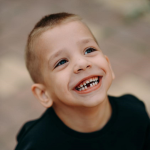Infantile Autism
Autism Spectrum Disorder (ASD) is a multifaceted condition often accompanied by other pathologies. One of the rare forms is infantile autism, also referred to as infantile psychosis in autism. Understanding the features of infantile autism is crucial to determining how best to treat a child with this diagnosis.
Infantilism
Infantilism refers to a developmental characteristic in which a child retains childlike behavior and even physical traits that do not align with their chronological age. Infantile traits are evident in both mental and physiological aspects. For instance, an older child may appear very naive, behave childishly, show frequent moodiness, and struggle with independence, responsibility, and decision-making.
Infantile Psychosis
Infantile psychosis is a mental disorder marked by a significant delay in psycho-emotional development, often with extreme difficulty in improving the patient’s condition. Pronounced isolation and delays in forming critical mental functions—such as personality, independence, and emotional-volitional characteristics—are prominent features.
Childhood Infantile Autism
Childhood infantile autism is a unique type of ASD that combines symptoms of autism and infantile psychosis. A child with this diagnosis typically exhibits poor cognitive and communication skills, withdrawal, and developmental delays compared to peers.
Children with this condition often struggle to study in standard educational environments, which negatively impacts their speech functions, ability to manage time and space, emotional regulation, and social expression.
Signs of Infantile Psychosis in Autistic Children
- Mood instability
- Irresponsibility
- Lack of purposefulness
- Fierce temper
- Absence of fear
- Risky actions
- Arrogant behavior with a sense of superiority
- Demanding nature
- Inability to express gratitude or understand its importance
- Depreciation of others
- Undeveloped empathy
- Tendency to shift responsibility to others
- Inability to acknowledge mistakes or take corrective actions
Unique Treatment for Infantile Autism
This rare pathology poses significant challenges for both scientists and medical practitioners. While ASD remains incurable, developmental and psychological rehabilitation methods are used for symptom management. However, a promising natural solution lies in the body itself.
Every child’s body contains stem cells capable of repairing damage. These foundational building blocks can be harvested from umbilical cord blood or bone marrow and injected into the spinal canal to activate their restorative functions.
Benefits of Cellular Therapy for Childhood Autism Spectrum Disorder:
- Repairs damaged areas of the brain
- Restores normal development
- Reduces symptoms of autism and infantile psychosis
Though still relatively new, this treatment has demonstrated significant effectiveness, providing hope for children with infantile autism.
Contact the Mardaleishvili Medical Centre for Treatment of Childhood Infantile Autism
With this approach, the process of growing up can be naturally corrected!
Autism Treatment Center Videos
Autism treatment with own stem cells
Cord blood association congress
International Quality Crown
Autism Treatment Reviews
Autism treatment with own stem cells
The story of Alessandro (6 years old)
Autism Patient Testimonial - Stem Cell Treatment
Clients Testimonials

Feedback from Igor, David’s father (12 years old) Read More
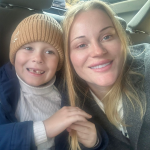
Feedback from Olga, Fedya’s mother Read More
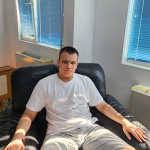
Feedback from Natalia, Radomir’s mother (15 years old) Read More
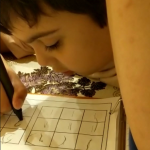
Feedback from Esther, Samuel’s mother (8 years old) Read More
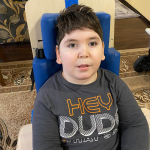
Feedback from Abibe, Selim’s mother (7 years old) Read More
